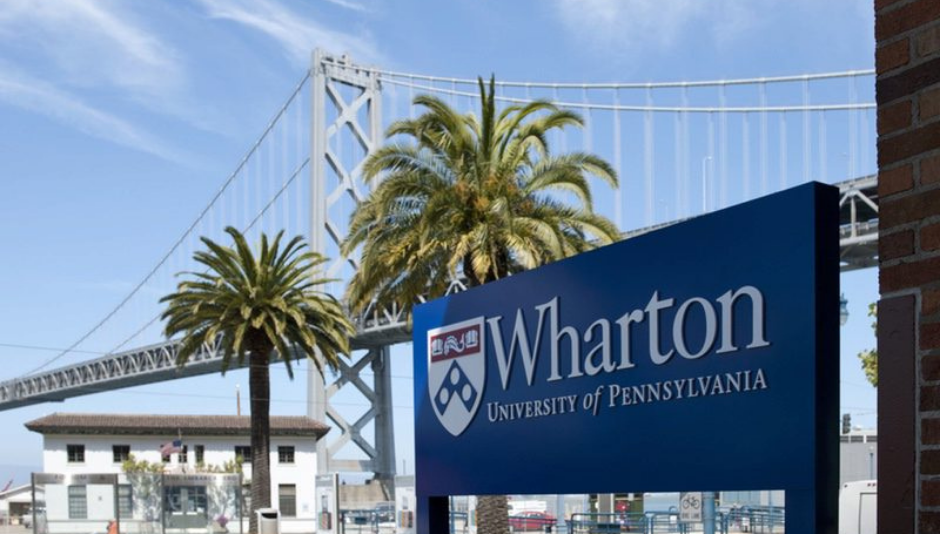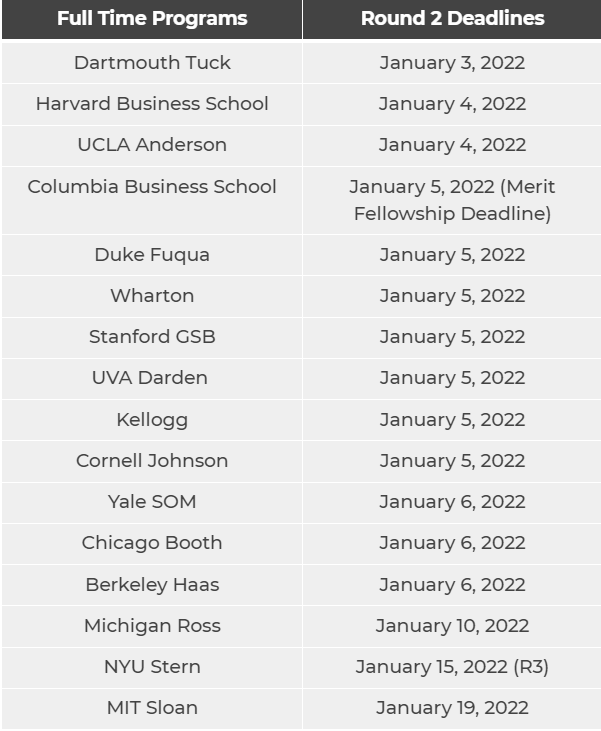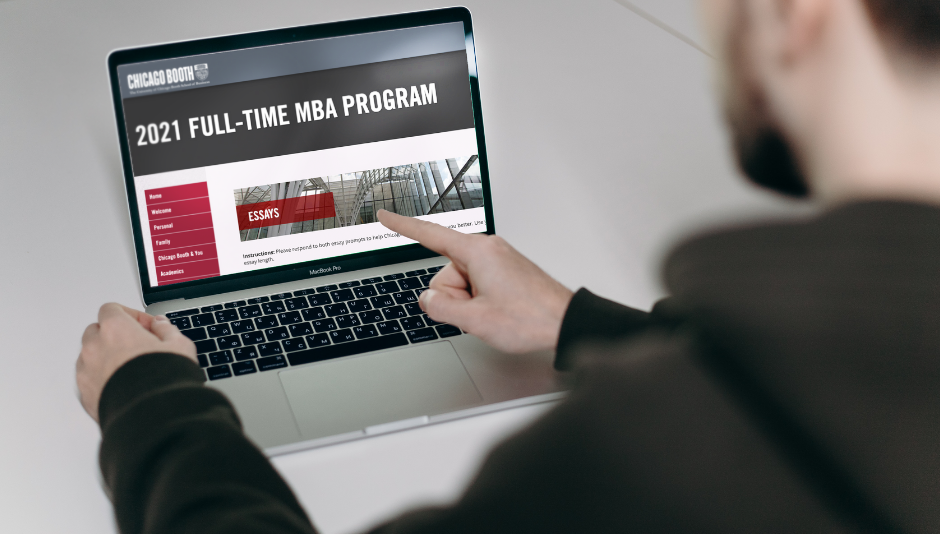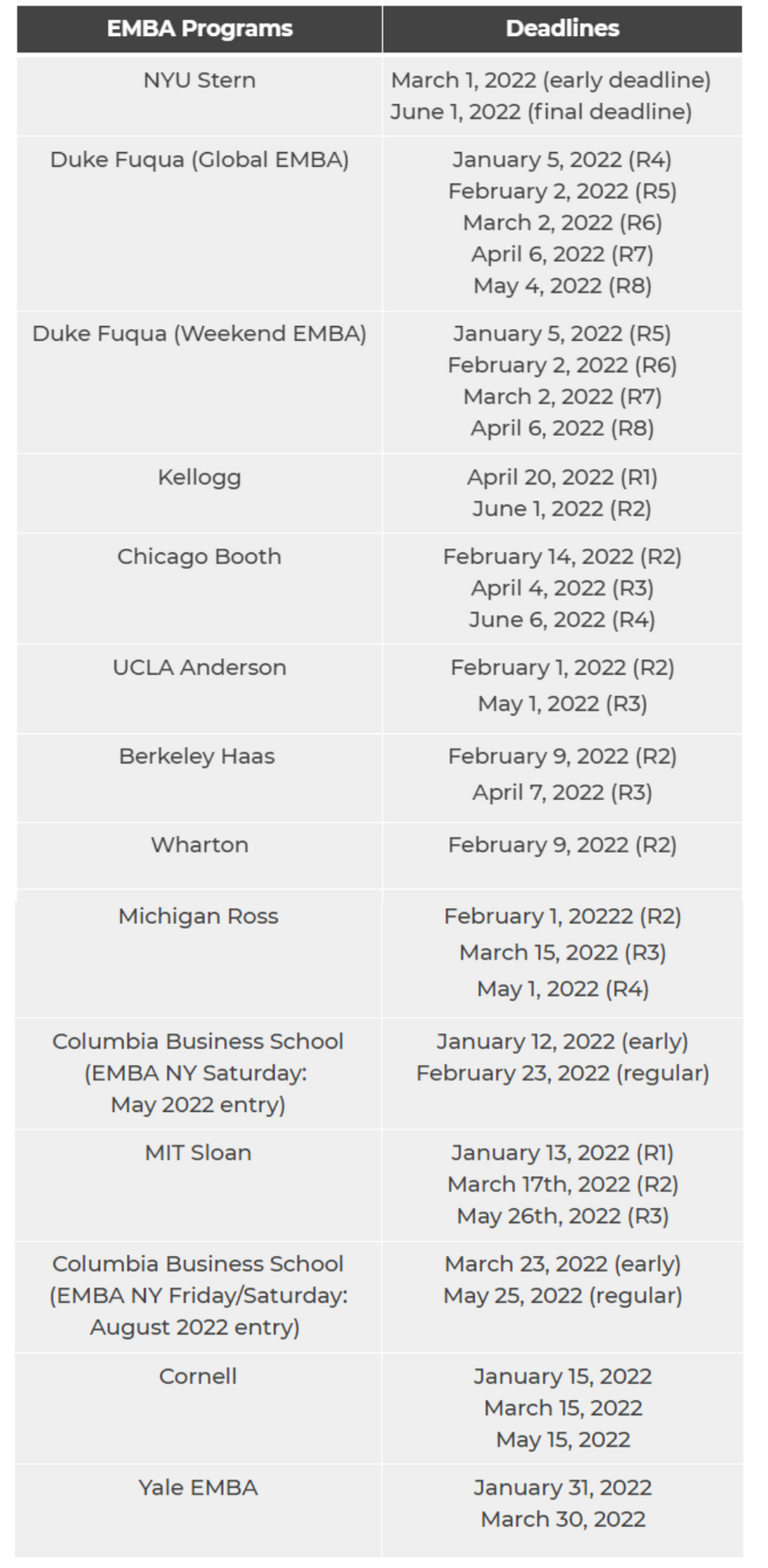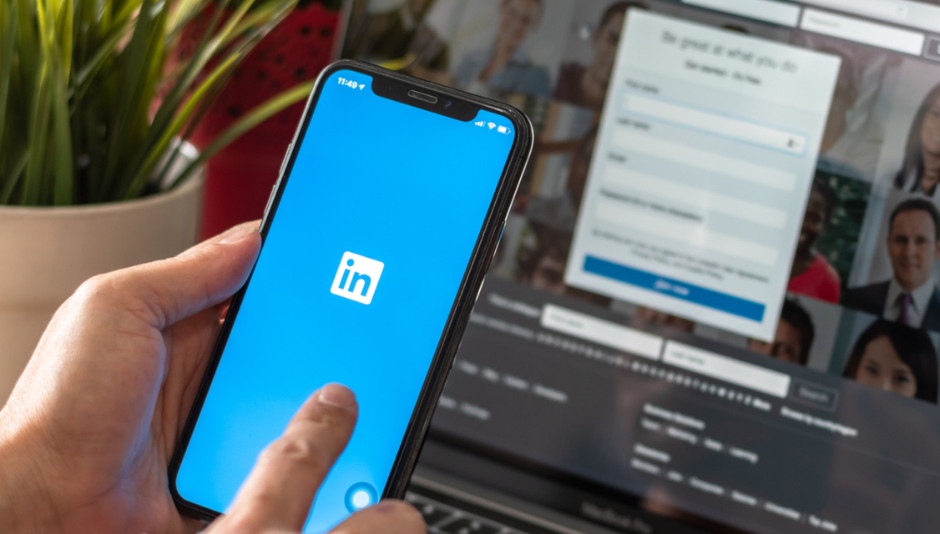Events & Promotions
|
|

GMAT Club Daily Prep
Thank you for using the timer - this advanced tool can estimate your performance and suggest more practice questions. We have subscribed you to Daily Prep Questions via email.
Customized
for You
Track
Your Progress
Practice
Pays
Not interested in getting valuable practice questions and articles delivered to your email? No problem, unsubscribe here.
- Nov 20
07:30 AM PST
-08:30 AM PST
Learn what truly sets the UC Riverside MBA apart and how it helps in your professional growth - Nov 20
10:00 AM EST
-10:30 AM EST
If you’re applying to Columbia, NYU Stern, or Yale SOM, you need more than strong stats. Each school defines “leadership” differently, and your essays must reflect that. Join Sia Admissions founder, Susan Berishaj on November 20th - Nov 20
09:00 PM IST
-10:00 PM IST
Join our free expert-led Essay Workshops to discover how to choose impactful stories, highlight your core values, and align your background with each school’s distinct culture, making every word truly count. - Nov 12
01:00 PM EST
-11:59 PM EST
Get expert MBA strategy, instant essay feedback, and personalized advice on your entire application. Join My Admit Coach, the AI-powered MBA admissions platform built on 10K+ successful application docs for HBS, Stanford GSB, MIT and other top programs. - Nov 19
09:00 AM PST
-10:00 AM PST
What’s in it for you- Live Profile Evaluation Chat Session with Jenifer Turtschnow, CEO ARINGO. Come with your details prepared and ARINGO will share insights! Pre-MBA Role/Industry, YOE, Exam Score, C/GPA, ECs Post-MBA Role/ Industry & School List. - Nov 19
10:00 AM EST
-01:00 PM EST
Get expert MBA strategy, instant essay feedback, and personalized advice on your entire application. Join My Admit Coach, the AI-powered MBA admissions platform built on 10K+ successful application docs for HBS, Stanford GSB, MIT and other top programs. - Nov 19
11:00 AM PST
-12:00 PM PST
Round 2 is here — and it’s your chance to make your MBA dream happen! Join GMAT Club’s LIVE discussion with two top experts from The Red Pen, Gunjan Jhunjhunwala and Natasha Mankikar, as we break down everything you need to know - Nov 21
08:30 AM EST
-09:15 AM EST
Get the inside scoop on what makes Emory’s Goizueta Business School great, learn how you can present a strong MBA application, and connect with an Admissions Director to get your questions answered. - Nov 21
09:30 PM IST
-10:30 PM IST
Learn how to craft powerful, authentic essays by mastering the 3 “WHYs” every top MBA program looks for: Why MBA, Why Now, and Why This School. - Nov 24
08:00 PM PST
-09:00 PM PST
Inquire for a free profile evaluation and guarantee statement for possible admits and scholarships!
PersonalMBACoach
 Expert
Expert
Personal MBA Coach Founder
Joined: 11 Sep 2010
Last visit: 19 Nov 2025
Posts: 3,756
Own Kudos:
Given Kudos: 11
Status:Boutique MBA Admissions Consulting from a Wharton graduate - Helping applicants get into top global business schools since 2008
Affiliations: Wharton, MIT
Location: United States (NY)
Overall Client Admit Rate: 96%
Expert reply
Kudos
Bookmarks
| FROM Personal MBA Coach: Why Should I Get an MBA? |
|
Are you considering an MBA but still not sure whether it is the right move for you? Or perhaps you think you want one but still do not know what you will do with the degree once you graduate? Either way, you have come to the right place. Every year, Personal MBA Coach works with clients who began the business school application process asking: “Why should I get an MBA?” While there can be countless reasons for why an MBA might be the right fit for you, today Personal MBA Coach would like to share the top 10 reasons for considering an MBA. 1. Career stagnation Have you stretched yourself as much as possible in your current role? Do you need an MBA or advanced degree to reach the next level? If you are bored at work and feel that you have learned all you can in your current role, this is a good sign an MBA might be right for you. Even if you feel you are close to plateauing, now could be a good time to start researching MBA program as it might still be another 18 months until you are likely to enroll. 2. Close specific skill gaps To gain specific knowledge is one of the top reasons to get an MBA. While naturally MBA programs are great opportunities to strengthen core skills including finance, accounting and marketing, top MBA programs offer courses across broad industries and functional areas, allowing students to learn the fundamentals from industry experts. In recent years, top MBA programs have begun to offer more unique courses. From Harvard’s Risks, Opportunities, And Investments In The Era Of Climate Change to Kellogg’s Influencer Marketing , MBA hopefuls have access to an array of classes in emerging fields. [img]https://www.personalmbacoach.com/wp-content/uploads/2021/10/WordPress-–-Why-Should-I-Get-an-MBA-2.png[/img] 3. Develop soft skills The “soft” skills that you will gain in business school are just as important as the technical skills you will develop (if not more important). MBA programs strongly emphasize skills including leadership, communication, and teamwork both in and out of the classroom. Naturally, these are all key skills for young professionals, preparing them to become future leaders. On top of this, various volunteer programs and travel opportunities give students the chance to further develop personally and professionally. 4. Explore career paths in an open and trusting environment While Personal MBA Coach advises all clients to apply to business school with clear MBA goals and future plans, no one will actually hold yourself to these goals. Instead, MBA programs foster a safe environment to explore classes or programs in other fields and intern with companies in diverse industries. This exploration can lead students to find new passions or solidify their desired career path. 5. Receive a “holistic” business education If you are wondering “Why should I get an MBA instead of a specialized master’s degree?” Personal MBA Coach encourages you to think about your ideal career path. Although specialized masters’ programs can be a great way for folks to advance their careers, for those with broader aspirations, an MBA can open more doors. For instance, a master’s in marketing might be ideal for someone who wants to focus on marketing expertise and rise via a narrower path. However, an MBA can teach the marketing skills needed to succeed in most companies as well as advanced leadership skills to help you assume higher level roles within an organization. [img]https://www.personalmbacoach.com/wp-content/uploads/2021/10/WordPress-–-Why-Should-I-Get-an-MBA-1.png[/img] 6. Expand your professional network Business schools provide students with stellar networking experiences on campus and beyond. While peers provide great learning experiences in classroom settings, alumni are also powerful resources, especially as students start the job search. Alumni not only offer a wealth of insider information, but they also often extend a helping hand to fellow alums who are interested in their companies. Thus, these networks are another reason to get an MBA. Alumni can also serve as partners, mentors or even investors. Harvard Business School is particularly known for its powerful alumni network. The school has 85,000 alumni in 173 countries, making the network a truly global resource. Many other top business schools have substantial worldwide networks as well. Wharton, for instance, has alumni in 153 countries. 7. Switch careers While some MBA graduates return to the same industry after their studies, pursuing an MBA is a great way to switch careers and break into a new field. Since post-MBA students often start at similar levels to each other, business school also can serve as an equalizer. 8. Open a door to your dream job Through alumni networks, career service departments and on/off campus recruiting programs, business schools play a key role in helping graduates find their dream jobs. This is particularly true for fields that rarely recruit candidates without MBAs. [img]https://www.personalmbacoach.com/wp-content/uploads/2021/10/WordPress-–-Why-Should-I-Get-an-MBA.png[/img] 9. Increase your salary If the question “Why should I get an MBA?” has still not been fully answered for you, the increased salary potential may be the most compelling incentive. It is no secret that MBA students receive high salaries after graduation. According to the Graduate Management Admissions Council, the median salary of MBA graduates ($115,000) is 77 percent more than those who have a bachelor’s degree ($65,000). Of course, an MBA is quite costly. However, most candidates look at an MBA as an investment in themselves. Plus, on average, Personal MBA Coach’s clients make money working with us since they receive far more in scholarships than they would on their own. Last year, our clients collectively earned an industry-leading $6.5M+ in scholarships! 10. Gain credibility and marketability While Personal MBA Coach does not encourage applicants to say in their MBA applications that they are applying to business school to “check the box,” it is no secret that having an MBA (particularly from a top program) will increase your credibility and professional marketability. In a strong job market, this may not be as crucial, but keep in mind the MBA is a degree you will have throughout your career. If you are looking for a job in a weaker market or after taking a break from the workforce, having an MBA will without a doubt make you a more attractive candidate. Have you established your reasons to get an MBA but are not sure if now is the right time? To help determine whether now is the best time to apply to business school, ask yourself if one or more of the following rings true for you. If so, now may very well be the time to begin the application process. Visit our comprehensive packages to learn how Personal MBA Coach can help set you up for success. About Personal MBA Coach: Founded by a Wharton MBA and MIT Sloan graduate who sits on the Association of International Graduate Admissions Consultants Board of Directors, Personal MBA Coach has been guiding clients for 14 years and is consistently ranked #1 or #2 by leading sources including Poets&Quants. We help clients with all aspects of the MBA application process including early planning, GMAT/GRE/EA tutoring, application strategy, school selection, essay editing and mock interviews. Our team includes former M7 admissions directors and former M7 admissions interviewers. Last year, our clients earned more than $6.5M in scholarships! The post Why Should I Get an MBA? appeared first on Personal MBA Coach. |
This Blog post was imported into the forum automatically. We hope you found it helpful. Please use the Kudos button if you did, or please PM/DM me if you found it disruptive and I will take care of it.
-BB
PersonalMBACoach
 Expert
Expert
Personal MBA Coach Founder
Joined: 11 Sep 2010
Last visit: 19 Nov 2025
Posts: 3,756
Own Kudos:
Given Kudos: 11
Status:Boutique MBA Admissions Consulting from a Wharton graduate - Helping applicants get into top global business schools since 2008
Affiliations: Wharton, MIT
Location: United States (NY)
Overall Client Admit Rate: 96%
Expert reply
Kudos
Bookmarks
| FROM Personal MBA Coach: The Virtual Wharton TBD Interview |
|
Wharton Team Based Discussion (TBD) interview invitations will be released tomorrow on Wednesday, October 27. If you are lucky enough to receive an invitation, congratulations! The harder part comes next – planning for this unique experience. The group interview causes anxiety for many MBA applicants. Once again, Wharton will be conducting virtual interviews this time around, adding to candidate apprehension. To help candidates prepare for this unique experience, Personal MBA Coach will be offering à la carte Wharton group interview sessions (see below for details), providing candidates a unique opportunity to practice for this difficult interview. We have a former Wharton Admissions Director and former Wharton TBD interviewers to conduct these sessions! You can practice with an interviewer who has evaluated countless applicants at Wharton and knows exactly how to help you ace the TBD. Last year, 84% of our interviewees were accepted! While group interviews require additional preparation, with the proper practice and planning they actually can be easier than an individual interview. Personal MBA Coach is here to answer a few of your most pressing questions! What exactly is the Wharton TBD? The Wharton TBD is required for all candidates invited to interview and includes the following three components:
 How should I approach a group interview? Tip 1. Do not be the loudest one on the screen. Many candidates attempt to stand out by dominating the conversation. We do not advise this approach. The group interview is a great way for Wharton to assess how a candidate is likely to act in classroom discussions and during group meetings. Admissions committee members are looking for leaders who are able to actively contribute, but they are not interested in someone who will talk over their peers and force their opinions on others. Tip 2. Do not be a wallflower. While you do not want to dominate, you also should not be the quietest one on the screen. It is important to ensure that your opinions and voice are heard. This means that you need to strike a delicate (but difficult) balance—which is even more complicated on screen where it is harder to read subtle cues from other participants. Tip 3. Look for ways to add to an idea as opposed to contradicting it. You do not have to be the one with the most unique idea or divergent position to stand out. Top leaders collaborate with their teams, and this skill is equally important in the business school classroom. Looking for ways to build off another idea or suggestion will show the evaluator that you know how to work with a team or a group. Think about where you can add the “and” instead of the “but” or the “or” here. Tip 4. Respect your peers. Particularly in the current climate, this should go without saying. Remain open to diverse points of view. Bringing in observations does not mean debunking what others have to say. If you disagree with someone in the group, be respectful and politely add another perspective without being critical or rude. Tip 5. Do your research and plan ahead. As with any other interview, adequate preparation is key. Wharton will release the topic in advance, giving candidates the opportunity to prepare for the TBD. Heed this advice and arrive with specific and well-researched talking points. However, also be prepared to pivot as needed.  What advice do you have for virtual interviewing? To help you prepare for some of the unique challenges of a virtual interview, Personal MBA Coach reached out to former MBA Admissions Interviewers on our team, including MJ Shores, a former Wharton Admissions Director and Personal MBA Coach consultant, for their top tips! 1) Look into the camera or webcam, which is often placed higher than the normal vision. In addition, practice your set up with a friend or family member in advance of the interview to make sure the equipment is staged properly and functioning. Finally, be careful when using virtual backgrounds. Depending upon the video capabilities of your system, virtual backgrounds can place a strain on the system and make either the person’s head or the background fade in and out. – Former Wharton Admissions Director 2) Treat a virtual interview the same way you would an in-person interview – dress as you would if you were going in person, have a quiet and clean space with good lighting in which to conduct your interview, and of course, be on time! – Former Dartmouth Tuck Admissions Interviewer 3) It is crucial to emote a bit more on virtual interviews since you do not have the nonverbal cues you would have in person. Be sure to modulate how quickly you are speaking, pause at the right time, smile and express excitement. While using hand motions can be great, avoid too much movement, which can be even more distracting on virtual interviews. – Former Yale SOM Admissions Interviewer Check out the details on Personal MBA Coach’s TBD practice sessions, which will begin on November 1st. These sessions will mirror the actual Wharton interview, providing candidates an opportunity to work together with other applicants during a group session. They then will be followed by one-on-one interviews with former M7 MBA interviewers. Each participant will receive our proprietary interview preparation guide and a personal feedback session. About Personal MBA Coach: Founded by a Wharton MBA and MIT Sloan graduate who sits on the Association of International Graduate Admissions Consultants Board of Directors, Personal MBA Coach has been guiding clients for 14 years and is consistently ranked #1 or #2 by leading sources including Poets&Quants. We help clients with all aspects of the MBA application process including early planning, GMAT/GRE/EA tutoring, application strategy, school selection, essay editing and mock interviews. Our team includes former M7 admissions directors and former M7 admissions interviewers. Last year, our clients earned more than $6.5M in scholarships! The post The Virtual Wharton TBD Interview appeared first on Personal MBA Coach. |
This Blog post was imported into the forum automatically. We hope you found it helpful. Please use the Kudos button if you did, or please PM/DM me if you found it disruptive and I will take care of it.
-BB
PersonalMBACoach
 Expert
Expert
Personal MBA Coach Founder
Joined: 11 Sep 2010
Last visit: 19 Nov 2025
Posts: 3,756
Own Kudos:
Given Kudos: 11
Status:Boutique MBA Admissions Consulting from a Wharton graduate - Helping applicants get into top global business schools since 2008
Affiliations: Wharton, MIT
Location: United States (NY)
Overall Client Admit Rate: 96%
Expert reply
Kudos
Bookmarks
| FROM Personal MBA Coach: MBA Candidate Success Spotlight: 2021 Columbia Business School Admit |
|
The 2021-2022 MBA application cycle is off to a strong start, with Personal MBA Coach clients already earning acceptances to numerous top MBA programs. While round 1 offers have not yet been extended at many schools, including Harvard Business School, Wharton and MIT Sloan, Columbia Business School has already begun to fill seats in the class of 2024. Curious what it took to get an offer to CBS this year? Hear firsthand how this Personal MBA Coach client was accepted to Columbia Business School in round 1! Profile Overview MBA Program: Columbia Business School Gender/Ethnicity: Female/White Years of Experience: 3 GMAT: Low 700s Pre-MBA Experience: Finance Education: Top Public University GPA: High 3’s [img]https://www.personalmbacoach.com/wp-content/uploads/2021/11/WordPress-–-MBA-Candidate-Success-Spotlight-5.png[/img] MBA Candidate Q&A Personal MBA Coach: Why did you decide to pursue an MBA? Candidate: I decided to pursue an MBA in order to make a career transition into investment management. Personal MBA Coach: How did you decide on which schools to apply to? Candidate: Going into the process, I had a pretty good sense of the schools that I wanted to apply to, given my goal to pursue a career in finance post-MBA as well as my desire to attend a school near my family. During my kick-off call with Scott, we discussed what factors were the most important to me as well as a good balance of reach and target schools. After that, I had my set list of schools I was going to apply to. Personal MBA Coach: What was the hardest part of the application process? Candidate: The hardest part of the application process for me was staying on top of writing all the essays before the due dates while also working a demanding full-time job. The Personal MBA Coach team constantly made sure I was able to stay ahead of my deadlines and complete all materials in time for round 1. Personal MBA Coach: Why did you decide to turn to Personal MBA Coach for help? Candidate: When looking for a consultant, I had initial calls with a lot of companies. Personal MBA Coach stood out to me because of its boutique nature – I knew once I spoke to Scott that I would really get that one-on-one focus that I didn’t feel I would have with others. During our initial call, Scott was very honest about the parts of my application that I would need to work on to maximize my chances at top 10 schools. On top of that, Personal MBA Coach had some of the best reviews on sites like Poets & Quants and GMAT Club. Altogether, these factors made me decide that Scott and the Personal MBA Coach team would be the best partner for me during this process. [img]https://www.personalmbacoach.com/wp-content/uploads/2021/11/WordPress-–-MBA-Candidate-Success-Spotlight-2-1.png[/img] Personal MBA Coach: What was the biggest surprise for you throughout the application process? Candidate: The biggest surprise throughout the process was how introspective you really have to get. Putting together your story and actually understanding what drives your short-term and long-term goals is something that doesn’t feel natural at first, but it makes you learn a lot about yourself in both a personal and professional sense. Personal MBA Coach: How did Personal MBA Coach help you? Candidate: Personal MBA Coach has helped me tremendously, and I truly don’t believe I could have gotten the outcome I have now had it not been for this team. Not only did the Personal MBA Coach team keep me on top of all my deadlines, but they also helped me pick essay topics and key points to focus on, reach out to recommenders, and prepare for interviews. I really felt I had someone to turn to from the beginning of the process straight through to the end – which is something that is unparalleled in this application process. Personal MBA Coach: Do you have any final pieces of advice for prospective MBA candidates? Candidate: My advice would be to really put in the time and effort. Crafting your story is a very important part of the application process, so it’s not something that will be created overnight. The process is long and, at points, can be tedious, but it is very worth it in the end. About Personal MBA Coach: Founded by a Wharton MBA and MIT Sloan graduate who sits on the Association of International Graduate Admissions Consultants Board of Directors, Personal MBA Coach has been guiding clients for 14 years and is consistently ranked #1 or #2 by leading sources including Poets & Quants. We help clients with all aspects of the MBA application process including early planning, GMAT/GRE/EA tutoring, application strategy, school selection, essay editing and mock interviews. Our team includes former M7 admissions directors and former M7 admissions interviewers. Last year, our clients earned more than $6.5M in scholarships! The post MBA Candidate Success Spotlight: 2021 Columbia Business School Admit appeared first on Personal MBA Coach. |
This Blog post was imported into the forum automatically. We hope you found it helpful. Please use the Kudos button if you did, or please PM/DM me if you found it disruptive and I will take care of it.
-BB















